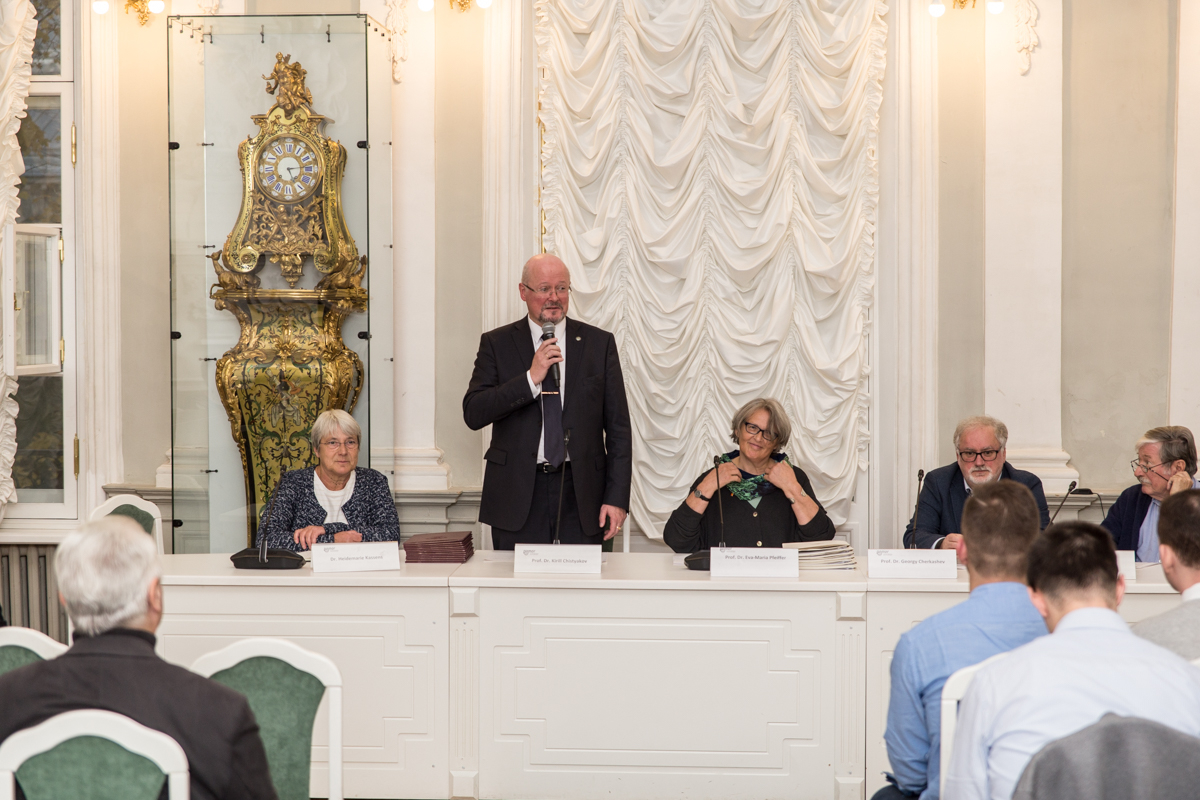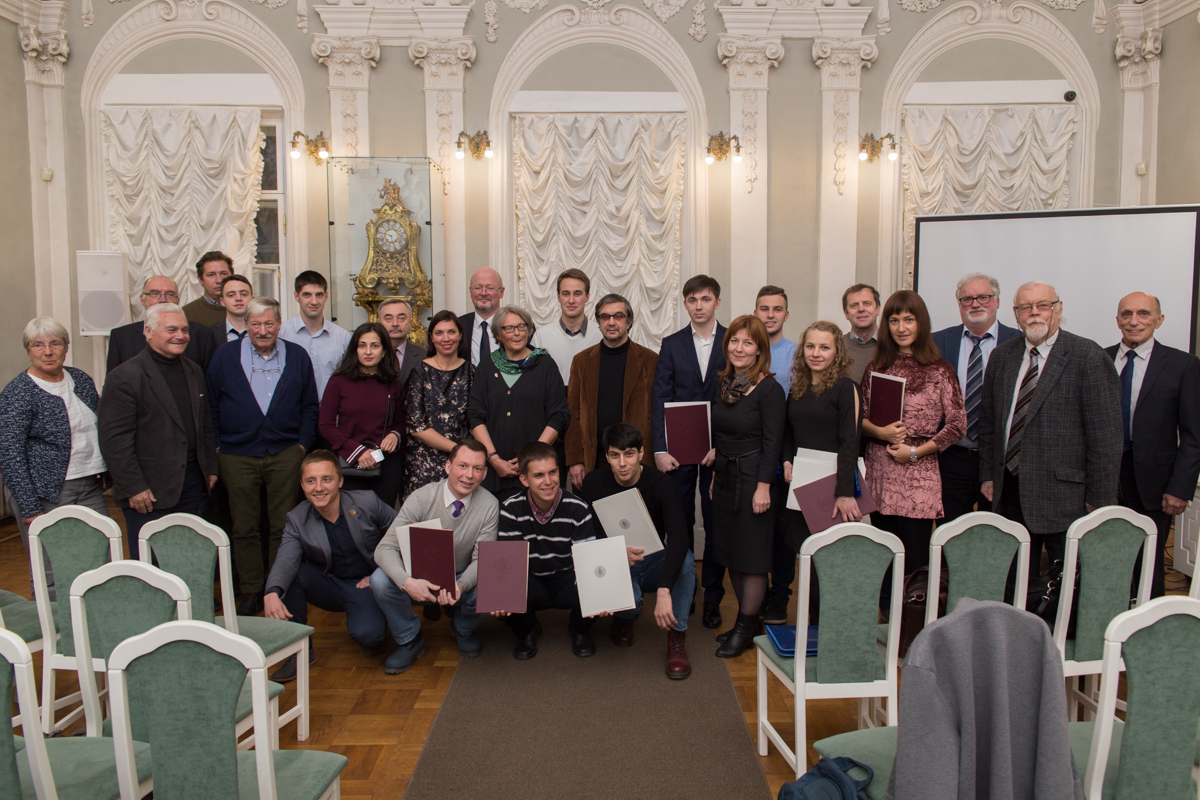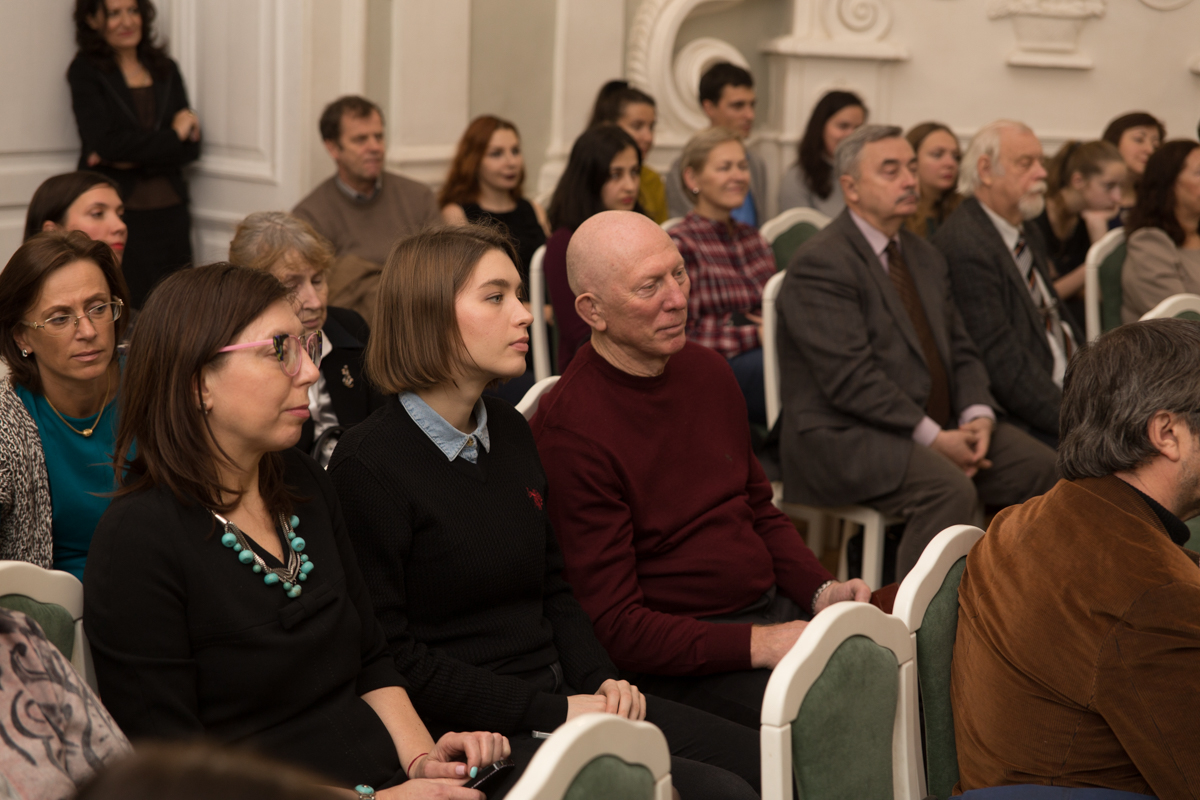Getting a degree in Polar and Marine Research
The ceremony was visited by the academic staff of St Petersburg University and University of Hamburg, representatives of the Consulate General of Germany, Russian geographical Society, Arctic and Antarctic Research Institute, VNIIOkeangeologia, and GEOMAR.
The representative of the Consulate General of Germany in St Petersburg Pietro Merlo congratulated graduates and academic staff of the international master programme Polar and Marine Research. In his opening speech, he told that the overarching priority for Germany is Germany-Russia collaboration in research and education.
The fact that we successfully realize the programme POMOR proves that Russia and Germany have friendly relationships, we can work hard and achieve outstanding results.
Representative of the Consulate General of Germany in St Petersburg Pietro Merlo
The polar research is globally vital, said he.
So did the Director of the Institute of the Earth Sciences at SPbU, Vice-President of the Russian Geographical Society Kirill Chistiakov. He hopes that POMOR, Complex Research of the Polar Environment, and a number of other projects will further enhance effective collaboration between SPbU and Germany’s universities. SPbU is the only research and educational institution in the eastern hemisphere to collaborate directly with the DFG, said Kirill Chistiakov. In 2015, the countries signed an agreement to arrange a competition to provide joint financial support to the Russia-Germany research projects.
SPbU’s Professor and an outstanding scientist Thiede Jörn, in his speech to the young scientists, said that POMOR is highly popular programme. “Polar research is of high interest today. The world has a clear view of the Arctic in terms of its strategic influence on economy, politics, military sphere, and others, — said Thiede Jörn. — Still, if we want to discover the full potential of all the opportunities hidden in the Arctic, we have to further accumulate our knowledge and experience”.
The today’s graduates have every chance to become successful kin science, said the SPbU’s research director of the programme Georgii Cherkashev. The overarching priority of Russia is to study and explore the Polar Regions and create favourable conditions for research projects, said he.
I am proud that St Petersburg University and the University of Hamburg are successful in implementing the programme on Polar and Marine Research. I hope that the graduates will be as well successful in their research career.
Professor of the University of Hamburg Eva-Maria Pfeiffer
Accredited by the ASIIN, POMOR focuses on the complex study of the polar and marine ecological systems and global climate change. From the German part, the programme brings together more than ten big research and educational institutions. The graduates are awarded two degrees: Master of SPbU and Master of Sciences of the University of Hamburg.
The polar research, as a highly popular research area, is at the core of education and science at SPbU. Today the University is striving to provide a sustainable development of the Arctic regions, including exploitation and exploration of the new mineral deposits, natural resource management, and Arctic eco-system protection. SPbU is actively engaged in these projects as an expert, educational and research centre bringing together the world’s leading scientists and educating a new generation of the Arctic and Antarctic researchers.





